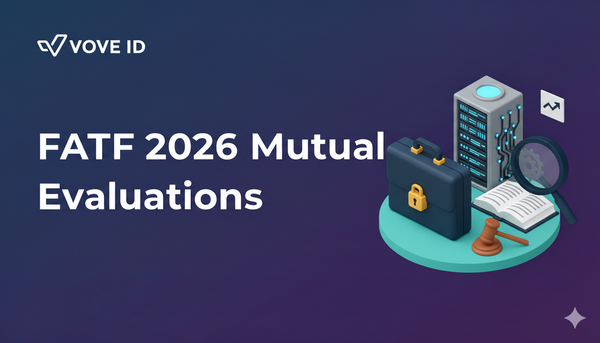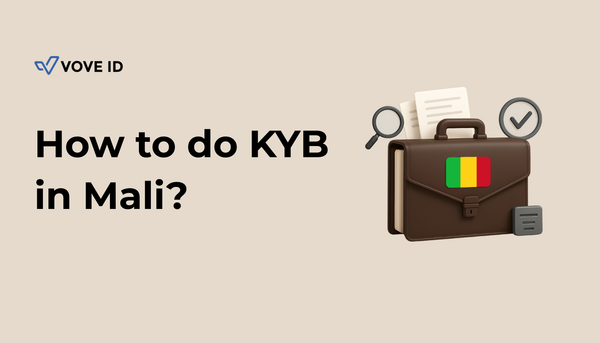AML Compliance in Tanzania: 2025 Guide for Fintechs and Regulated Businesses
Discover the 2025 guide to AML compliance in Tanzania. Learn about AML regulations, FIU and Bank of Tanzania requirements, customer due diligence (CDD), eKYC, and risk assessment for fintechs and regulated businesses.

Tanzania’s fintech sector is booming. Mobile money platforms, digital wallets, and cross-border payments are transforming how people access financial services. Over 60 million mobile money accounts handle transactions exceeding TZS 100 trillion annually. This shift has widened financial inclusion, particularly in rural areas, while attracting foreign direct investment (FDI), with projected economic growth of 6–7% in 2025.
However, rapid digitalization increases risks. Money laundering (ML), terrorist financing (TF), and proliferation financing (PF) are real concerns. For fintechs and regulated entities, KYC, KYB, and AML compliance are critical for sustainability and trust. If you want to see how other African markets are handling similar challenges, check out our guides on AML Compliance in Ethiopia: 2025 Guide and AML Compliance in Algeria: 2025 Guide.
Tanzania’s removal from the FATF grey list in June 2025 signals progress in financial crime prevention. For businesses, this means stricter standards—but also greater opportunities for global integration. To navigate these requirements efficiently, solutions like VOVE ID are increasingly used to streamline customer due diligence (CDD), perform real-time verification, and assess risk automatically.
Mobile money accounts now outnumber traditional bank accounts in Tanzania, making digital compliance essential for secure financial services.
Regulatory Framework
Tanzania’s KYC/KYB/AML regime aligns with FATF and ESAAMLG recommendations, emphasizing a risk-based approach.
Key laws:
- Anti-Money Laundering Act (Cap. 423, RE 2023): mandates CDD, record-keeping, STRs, and sanctions compliance.
- Prevention of Terrorism Act (Cap. 19, RE 2023): targets TF.
- AML Regulations 2022–2023: provide operational guidance for KYC and KYB, including verification of individuals and beneficial owners.
Oversight bodies:
- Financial Intelligence Unit (FIU): analyzes STRs, conducts risk assessments, and coordinates internationally.
- Bank of Tanzania (BoT): supervises financial institutions, issues eKYC guidelines, and monitors transactions.
- BRELA: manages company registration and KYB verification.
Even DNFBPs—lawyers, accountants, real estate agents, casinos—must perform CDD and report suspicious activity, ensuring FATF compliance and a secure environment for fintech innovation.
Compliance is not just avoiding fines—it’s about building trust with partners, investors, and customers.
KYC / KYB / AML Processes
Tanzania uses a risk-based model for KYC, KYB, and AML. Verification requirements depend on the client’s risk profile.
KYC: Verifying Individuals
- Verify IDs issued by NIDA, passports, or driver’s licenses.
- Confirm name, date of birth, nationality, and address.
- eKYC enables digital onboarding via APIs for real-time checks.
KYB: Verifying Businesses
- Verify registration via BRELA.
- Identify beneficial owners (≥25% ownership).
- Analyze corporate structures to detect shell companies.
Required documents:
- Certificates of incorporation
- Tax IDs
- Shareholder details
Customer Due Diligence (CDD)
- Standard CDD for low-risk clients
- Enhanced Due Diligence (EDD) for high-risk clients: PEPs, foreign entities, large transactions
EDD includes:
- Source-of-funds verification
- Ongoing monitoring
- PEP screening
AML Monitoring & Reporting
- Monitor transactions for unusual patterns
- File STRs within 24 hours to FIU
- Report cash transactions ≥ TZS 20 million (~USD 7,500) and electronic transfers ≥ USD 1,000
- Retain records for 10 years, with MLRO oversight
Key Challenges
Businesses in Tanzania face hurdles:
- Cash-heavy economy: Over 50% of transactions occur outside formal channels.
- ID gaps: Only about 70% of adults have formal IDs.
- Regulatory pressure: Rapidly evolving BoT guidelines require significant adaptation.
- Technology gaps: Outdated systems and low integration with registries increase manual workload.
- DNFBP oversight: Weak enforcement and occasional corruption add risk.
- International scrutiny: Post-FATF grey list, businesses must continuously prove compliance to avoid fines or reputational damage.
Scalable, automated tools are critical to address these challenges efficiently.
Opportunities and Trends
Tanzania’s fintech market offers opportunities for growth:
- Mobile money penetration is rising, expected at 75% by 2025.
- Biometric verification and AI-driven eKYC/KYB enable faster onboarding and fraud prevention.
- AI-driven AML allows real-time risk detection and automated reporting.
- Smartphone adoption at 52% supports cross-border partnerships and FDI attraction.
- Regulatory support for fintech innovations like blockchain enables compliant expansion.
Many Tanzanian fintechs now onboard thousands of clients digitally, reducing paperwork and improving user experience.
Digital solutions like VOVE ID help businesses leverage these trends by automating KYC/KYB processes and integrating risk assessments directly into fintech platforms.
Role of Technology & VOVE ID
Technology is transforming compliance in Tanzania:
- Digital identity solutions speed up ID verification via biometrics and API integrations with NIDA and BRELA.
- AI-powered tools verify beneficial ownership.
- Automation reduces errors, accelerates onboarding, and frees teams to focus on growth.
VOVE ID exemplifies this transformation, providing:
- Automated KYC/KYB checks
- Real-time risk assessments
VOVE ID enables fintechs to scale efficiently while remaining fully compliant, turning regulatory requirements into a competitive advantage.
Ready to simplify KYC/KYB/AML compliance in Tanzania? Discover how VOVE ID can streamline onboarding, automate risk assessments, and keep your fintech fully compliant.
Conclusion
KYC/KYB/AML compliance is a strategic necessity in Tanzania’s fintech ecosystem. Adhering to robust frameworks:
- Builds trust with customers and investors
- Reduces risk exposure
- Enhances operational resilience
- Unlocks FDI opportunities
Digital identity tools, especially VOVE ID, empower startups and fintechs to navigate evolving regulations efficiently. By embracing automation, AI, and eKYC, businesses can thrive in a cashless, digitally driven economy, positioning Tanzania as a secure hub for financial innovation.




